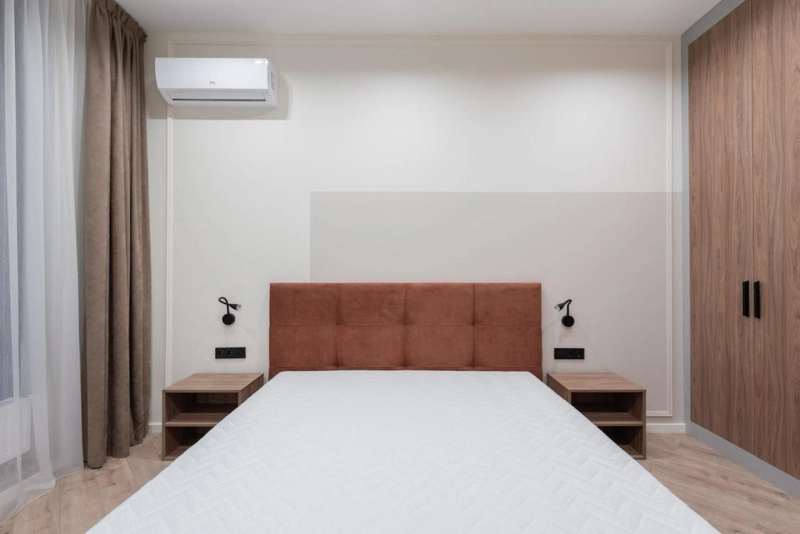Air conditioning is crucial for maintaining a comfortable and healthy indoor environment, especially during extreme weather conditions.
Therefore, it's essential to select the perfect air conditioning system to ensure optimal performance and efficiency. It ensures comfort, energy efficiency, and cost-effectiveness.
With various types of air conditioners available, it can be overwhelming to decide which one suits your needs best.
For personalized advice and professional HVAC installation, consider consulting with expert HVAC contractors who can guide you through the process and help you achieve optimal cooling for your home in Hammond, Ponchatoula, and Covington.
Let’s take a closer look at the factors and types of ACs to choose from.
1. Home Size and Layout
One of the most critical factors in choosing an air conditioner is the size of your home and the layout of your living space.
An air conditioner that is too small for your home will struggle to cool the area efficiently, while an oversized unit can lead to high energy bills and uneven cooling.
Here are some guidelines to help you determine the appropriate size:
Square Footage: Measure the square footage of the area you want to cool. Generally, you need about 21100 Joules per square foot.Room Layout: Consider the number of rooms and their arrangement. For example, an open floor plan may require a different cooling solution than a home with many separate rooms.Ceiling Height: Higher ceilings mean more air volume to cool, so you may need a more powerful unit.2. Climate and Weather Conditions
The climate in your region plays a significant role in determining the type of air conditioner you need. Different systems perform better in specific climates:
Hot and Humid Climates: In regions with high humidity, you need an air conditioner that can effectively dehumidify the air. Central air conditioning systems and ductless mini-splits are great options.Hot and Dry Climates: In dry areas, evaporative coolers (also known as swamp coolers) can be more effective and energy-efficient.Moderate Climates: For regions with mild summers, window units or portable air conditioners might suffice.3. Energy Efficiency Ratings
Energy efficiency is crucial for reducing your utility bills and minimizing your environmental impact. When choosing an air conditioner, pay attention to the following ratings:
SEER (Seasonal Energy Efficiency Ratio): This rating indicates the cooling output divided by the energy consumed over a typical cooling season. A higher SEER rating means better energy efficiency.EER (Energy Efficiency Ratio): Similar to SEER, but calculated based on a constant temperature. A higher EER rating signifies better efficiency.ENERGY STAR Certification: Look for units with the ENERGY STAR label, which meet strict energy efficiency guidelines set by the U.S. Environmental Protection Agency.4. Budget Considerations
Your budget will significantly influence the type of air conditioner you choose. Here are some cost-related factors to consider:
Initial Cost: Central air conditioning systems and ductless mini-splits tend to have higher upfront costs, while window units and portable air conditioners are more affordable.Installation Costs: Professional installation is required for central air systems and ductless mini-splits, adding to the overall cost. Window units and portable air conditioners can often be installed by homeowners.Operating Costs: Consider the long-term operating costs, including energy consumption and maintenance. More efficient units may have higher initial costs but lower operating expenses over time.Comparison of 5 AC Types
To help you decide which air conditioner is right for your home, here's a comparison of the most common types:
1. Central Air Conditioning Systems
Pros: Provides even cooling throughout the home, can be combined with heating systems, and quiet operation.Cons: High initial and installation costs, requires ductwork, higher maintenance.2. Ductless Mini-Split Systems
Pros: Flexible installation, no ductwork needed, efficient cooling, zoned cooling options.Cons: Higher initial cost, professional installation required, visible indoor units.1. Window Air Conditioners
Pros: Affordable, easy to install, ideal for cooling individual rooms.Cons: Noisy operation, blocks window view, less efficient for large spaces.2. Portable Air Conditioners
Pros: Easy to move, no permanent installation, suitable for temporary cooling.Cons: Less efficient, noisy, requires venting through a window.3. Evaporative Coolers
Pros: Energy-efficient, effective in dry climates, low operating costs.Cons: Not suitable for humid areas, requires regular maintenance, less effective cooling.Consult Majano Heating and A/C For Perfect Cooling Services
Choosing the right air conditioner for your home doesn't have to be overwhelming. At Majano Heating and A/C, their experienced HVAC contractors are here to help you find the perfect solution tailored to your specific needs.
Whether you need guidance on selecting the ideal unit, professional AC installation, repair, or ongoing maintenance services, they’ve got you covered.
So, contact them today for a consultation and ensure your home stays cool and comfortable all year round with the expertise and reliability of Majano Heating and A/C.
Author’s Bio
Passionate about enhancing home comfort, Monica B. provides expert advice on selecting the ideal air conditioner for your needs.



